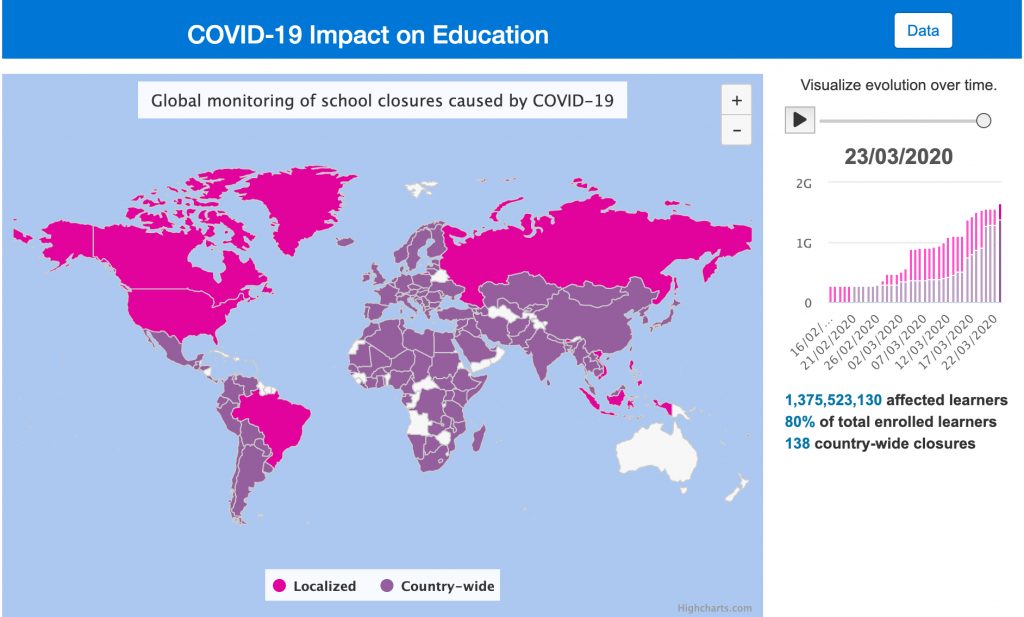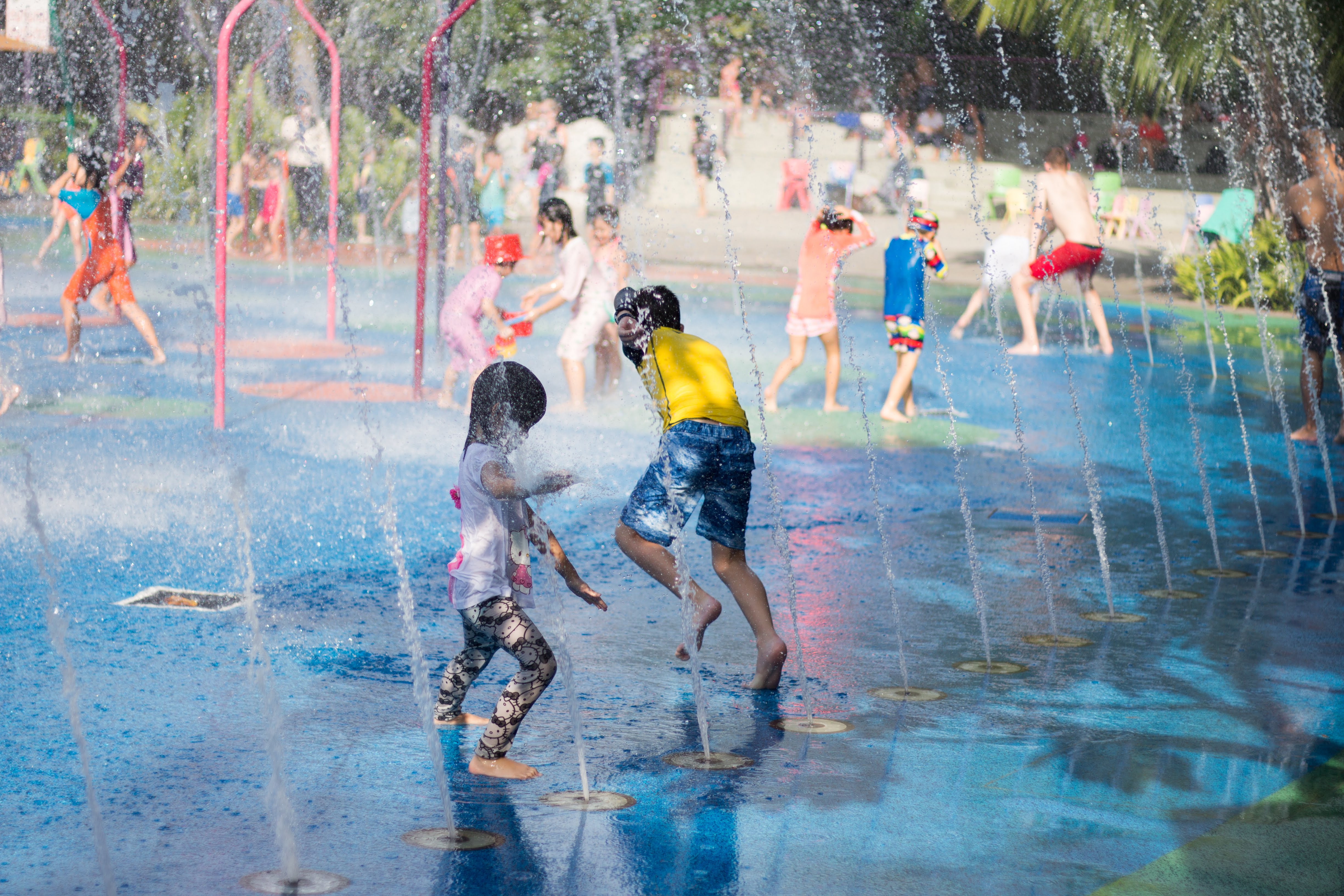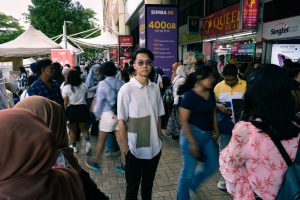This is a debate between Terry Ng and Vinita Ramani, two of our colleagues here at RICE who also happen to be parents. While they disagree over whether schools should have resumed as per normal, they also share a lot of dissatisfaction with how some things have been handled.
Singapore is an exception to this new and growing norm. This week, a petition was started at Change.org by parents who believe schools in Singapore should close, in keeping with the global trend to fight the coronavirus. Signed by close to 7,000 people, it exposes the increasing divide in Singapore between parents who want the schools to stay open, and those who want it shuttered for at least two weeks. Education Minister Ong Ke Yung explained in a Facebook post why schools will reopen this week, following the March school holidays.
There is no “right” answer in this debate. Every parent has a different perspective. We at RICE asked two staff writers, who are also parents, to tell us why they disagree with both each other and with MOE’s decision.
As a writer and editor with Rice, you could argue I’m in the ideal position to choose for schools to close. But I hope they will stay open.
As a parent of a toddler, we can engage in lots of fun activities at home (painting, reading, craft, dancing, singing, etc), but we don’t have the sort of sit-down school work/assignments that older kids have to keep our little ones occupied for an entire day.
We did a trial-run of staying at home when Covid-19 first spiked, and Singapore was among the top three countries with cases. For nearly three weeks I kept my daughter at home. I wasn’t working at Rice at the time, so I was able to manage this. But I did feel over time, that she wasn’t able to access the benefit of being with kids her age, and of building those subtle, but vital social skills that are valuable at this stage of life.
Keeping a toddler at home presents some challenges. They tend to need lots of attention, particularly if you have an only child. If playgrounds are not safe (i.e. they’re not sanitised regularly, unlike schools), then we run out of options, beyond outdoor walks with our kids. Working from home, and having your toddler/preschooler at home, is also difficult.
So I’m glad preschools are still open.
Terry: I have a five-year-old daughter who’s turning six in April. She’s attending K2 Mondays to Fridays. Since Singapore started reporting Covid-19 suspected and confirmed cases, my wife and I have restricted her outdoor activities at our neighbourhood playground.
She used to go there and play with her neighbours every weekday from 5 to 7 PM, but doesn’t do so anymore. Instead, she stays home and does drawing, colouring, and activities (with her parents). On weekends, she watches YouTube and cartoon channels. Occasionally, we take her out for a swim in a nearby pool.
Two of the reported Covid-19 cases came from the same street where we live. I remember when the first case near our block was reported and folks in our neighbourhood started sharing on Facebook. People started putting on masks when they stepped out.
There was an aura of anxiety. But this dissipated after a week or so. Then, other countries started reporting cases and deaths, and Singapore went into DORSCON Orange. We started taking more precautions, making sure our daughter put on her mask when she goes to school or goes out.
In recent days, Singapore’s infected cases have been on an upward trajectory. I’m seeing staggered steps being made on a near-daily basis to stem the inflow of imported cases. Many of these cases are from Singaporean and PR residents returning from overseas. The intensity of spikes and new measures coincided with the one-week March school holiday (14-22 March).
This means that parents who took their children abroad and returned (from non-high-risk countries or before the 20 March SHN mandate) but failed to declare them may potentially be introducing infected but asymptomatic children into classrooms when school reopened on 23 March.
I feel the school break should have been extended for another week.
To me, that’s the heart of the matter. If you’d instituted travel bans sooner, we’d not have to worry about closing schools now. We’ve done it now and I hope we’ll see a flattening of the curve, and a more disciplined approach to containing this virus within Singapore.
This entire dilemma is being exacerbated by the fact that parents who are less anxious about Covid-19, would have travelled right until the restrictions were imposed. For those of us who placed restrictions upon ourselves, who self-regulated (i.e. we have not travelled since January), now have to deal with the people who chose to travel and exposed themselves to the virus.
The travel declarations help, and I hope that keeps the parents and kids who travelled, at home, so that the rest of us (who did practice social distancing, or who have refused to travel, for fear of exposure to the virus) don’t have to have our routines disrupted.
But for me, as a parent, this is also where I’m putting my trust in the system: those travel declarations will be answered truthfully. There are penalties if you don’t. Sadly, I think introducing penalties that are real (i.e. you can be prosecuted) is the only way to ensure we have a clear picture of what’s going on.
Measures to keep these people at home ensures there is no need for a blanket closure, thereby penalising parents who want to send their kids to school, like me.
That said, I wanted to ask you a question Terry: is keeping your kid at home for two weeks (or more) something that works, from a day-to-day perspective? Who stays home? How do you figure out the routine at home?
Terry: It more than works, at least in my situation. The Manpower Ministry has encouraged companies to stagger employees’ work, allowing for work-from-home and BCP strategies. So my wife and I are now spending more time at home (far more than usual on a work week).
So even if our daughter stays at home for an additional week, I think she’s more than covered with adult supervision! She can even e-learn and life-learn through us from home. I’ve recently bought us a Google Home device so she can ask encyclopaedic questions and get intelligent responses.
I feel that there are two schools of thought now and the messaging differs between the Education Ministry and the Manpower Ministry. Work-wise, employees are advised to work from home; school-wise, children are advised to go to school now.
I think this disparity needs a serious review because it seems to tell me that workers can stay home and continue to be productive, but school children need to go to school to be productive.
Vinita: That’s not how I interpret it. I don’t think they’re concerned about productivity, so much as they are about herd immunity. Kids are not (yet) as vulnerable. So they want to keep the routine going by keeping schools open, at least until we have good reason to impose drastic measures.
The second point is this: you and I can make these choices. We can sit here and have this conversation, even if they close schools. We’ll figure it out. We can go into a room and shut the door, have our morning editorial meeting, and work on this story. What about frontline healthcare workers? People in transport, logistics, security etc? Basically every sector where you cannot work from home? What about low-income families who don’t have computers and i-pads for e-learning at home? Not everyone has access to learning online. And what about people who have elderly parents who can’t help with supervising kids?
In my case, my father has stage III Parkinson’s Disease. I cannot lean on my parents for regular help because it’s simply not possible. My father is also more vulnerable and that means I have to minimise his interactions with my daughter. Not everyone has a helper at home either.
If you just can’t manage, schools are often the safest, most hygienic environments for your child to be in. They’re also not living in an environment of heightened anxiety. Sometimes I’m glad to send my daughter to school, just so that she isn’t feeding off my anxious energy about this global pandemic.
Where I am worried is that every company, or school, might interpret these measures differently. There are grey areas that cannot be adequately monitored, or are not yet being regulated.
A friend of mine has one child in primary school. A stall in the canteen is run by a man, whose wife travelled and has been given the SHN. But he was back in school, working at the stall. He’s since been served the SHN as well (after parents complained).
I also have a friend who travelled briefly with her husband, and is now serving SHN. But her husband is the team on shift (i.e. alternating team arrangements/staggered work), so he’s right back to work this week. So this is bizarre.
Technically, all adults who’ve travelled should stay at home no matter what, for 14 days. So in that regard, we’re back to this one essential point: people have to be responsible. People have to take initiative to say, “I need to stay home. I’m not coming in to work.”
I’m surprised the government is providing this “space” for people to exercise that discretion and to be responsible. It feels like a calculated risk. And that’s where I think we need to give critical feedback to our ministries, to our institutions. Do the checks on the ground. Don’t leave this entirely up to the individual’s discretion.
One reason given by Minister Ong for wanting schools to reopen is science. Young children aren’t as susceptible to being infected by Covid-19 compared to adults. We’re still at an early stage of even understanding the nature and mutations behind this virus. It hasn’t even been three months since it surfaced. According to UNESCO, as of 20 March, Singapore and Brunei are the only two ASEAN countries where school remains open country-wide. This is even though this pandemic is far from over.

What’s worse, they are less likely to look or fall sick even when infected. My concern as a parent is schools and day care centres can be breeding grounds for respiratory illnesses and other infections. Children like touching, and are curious by nature. They touch each other’s faces without a second’s thought. They don’t always wash their hands.
Who’s to say these milder illnesses (flu for example), especially in air-conditioned environments, would not be transmitted to day carers and teachers, and then get transmitted to other adults or older folk elsewhere?
Vinita: I don’t disagree with the data. You’re right that the world is still learning about the infection, and we don’t know if it’s mutating etc. But I think the challenges that come if we close schools are more acute than we realise. And as is the case across the board, the fundamental point is this: if you or your child is sick, of course exercise extra precautions and keep them home for longer than you ordinarily would.
Again, here’s the part that makes no sense to me: we’re all clinging onto this “14-day period” as if a person will wake up on the 15th day and be miraculously well, if indeed they had been incubating the virus. For every parent that says “let’s close for 2 weeks”, my response is: “what happens after that?”
You still want to send your kid to school after that, so how is that vastly different from parents like myself, who are fine with the schools staying open?
So an argument for school closures really becomes a question of time. How long are you prepared to have your kids at home? What if that closure is prolonged? What if 14 days isn’t enough? If it isn’t, then you’re asking families to prepare to be at home with their children for the long haul. Who will be impacted by this? From a gender perspective, will women/mothers be expected to be the ones to do home schooling, more than their male counterparts?
I think the critical question we need to ask of the Ministry (if we could) is this: okay great, you feel you’ve got this situation under control, or you’re taking a calibrated approach and you are reviewing things as the situation evolves. But it’s undeniable that we’re living a “new normal”.
If you’ve cancelled CCAs, then some kids who thrive in sports or those activities, will now be denied the ability to excel in those areas. Not everyone does well sitting in classrooms, engaged in book learning (or e-learning). And is this really the year to carry on with exams? With the PSLE and O- and A-levels? Those are the modifications we should seriously be making. This is not the year to measure aptitude in this way because life isn’t normal.
As some have pointed out, getting back up on our feet after the lockdown will be incredibly hard as well. And let’s not delude ourselves: we will get our class packs. We’ll find all those endless array of suggestions on YouTube and elsewhere to keep our kids entertained and engaged. We will get going on these grand endeavours. But at some point, sheer attrition and exhaustion will prompt us to turn to that insidious babysitter we all have at home: social media and screen time.
A Nielsen report predicts a 60% increase in media consumption in the U.S. during the pandemic. Let’s look at us: 84% of Singaporeans are online and the majority are social media users. What are the long-term consequences of increasing screen time? How will that affect our kids? I also rely on YouTube and shows for toddlers to keep my daughter engaged. I constantly feel unnerved by what that can do to her.
So my choice would be to reduce that, not increase it.
There are many other reasons why schools may have needed to reopen. It could be that our e-learning system across all school levels isn’t ready yet (but work-from-home systems for offices are). Not all school systems have trial-ed or tested e-learning for BCP contingencies, so the outbreak may have caught many educators unprepared. We also had this cheating issue to contend with.
But as a parent, my main concern is my daughter’s well being and health.
During these trying times, I just want to keep my eye on her as often as I can. I want to hear her voice, her singing, her cheery laughter. If she’s ‘away’ at school, she’s out of my sight and beyond the parental safety net I’m providing for her. I need to then take a deep breath and entrust the school, educators and the Ministry to practice the same level of protection and care as a parent would. They need to be responsible for whatever happens.
Under the current circumstances, I hope they don’t just see themselves as educators, but as critical caretakers of children’s lives.
Vinita: So maybe this is when we can all rise to the occasion? Let the schools stay open for now. And let the teachers take care of our kids’ health as well as their intellectual and emotional well-being. I hear you—I’ve entrusted my child’s welfare in the hands of her teachers at the preschool. When I wave bye to her every morning and she’s walking away with her teacher with a smile on her face, it is an act of faith.
I trust that beyond the closed gates, the adults in that institution are adopting impeccable standards. They’re going to follow those protocols. They won’t let things slip.
I have to believe this to carry on with my day and I do. So the lessons we are all learning here will stay with us for a long time.






